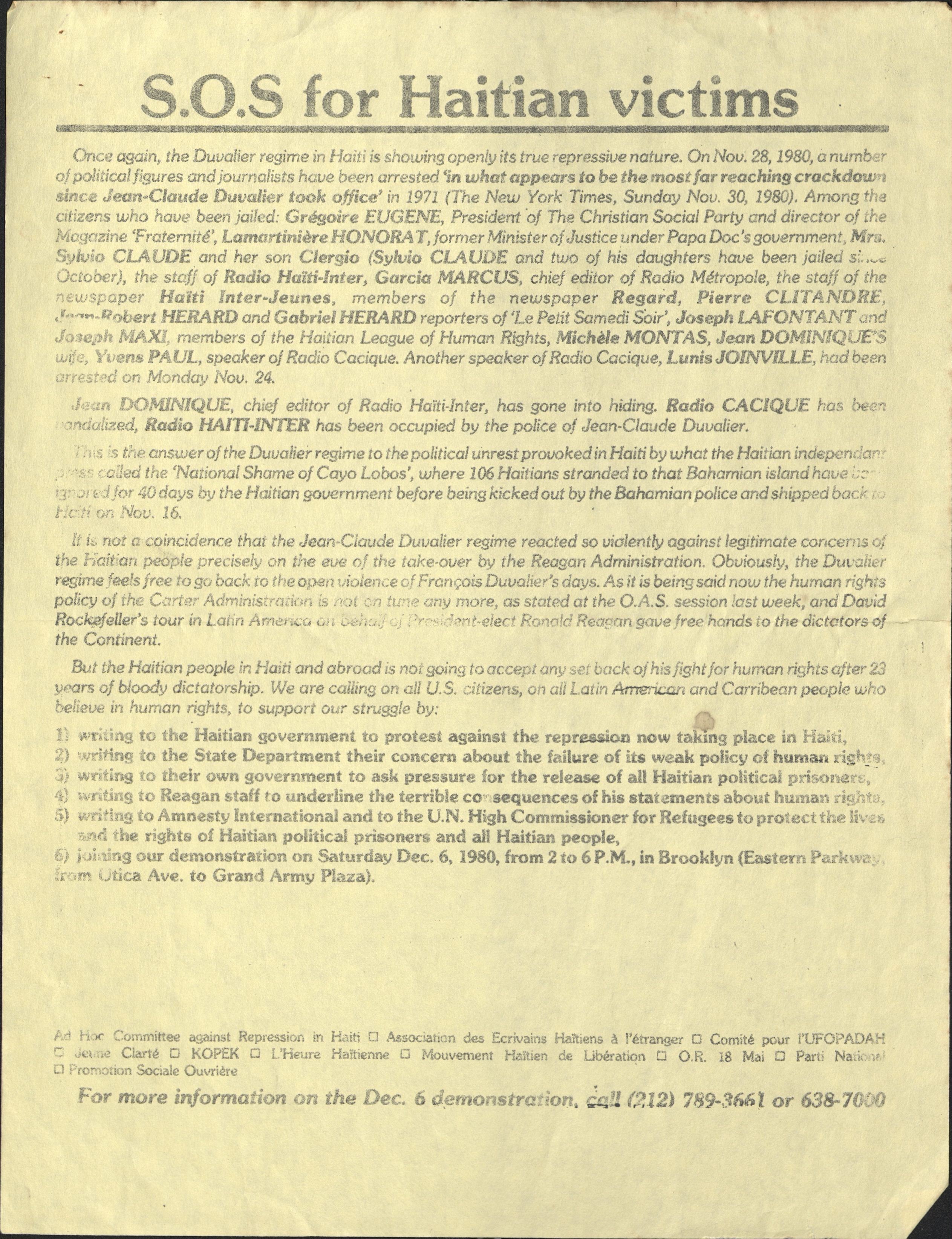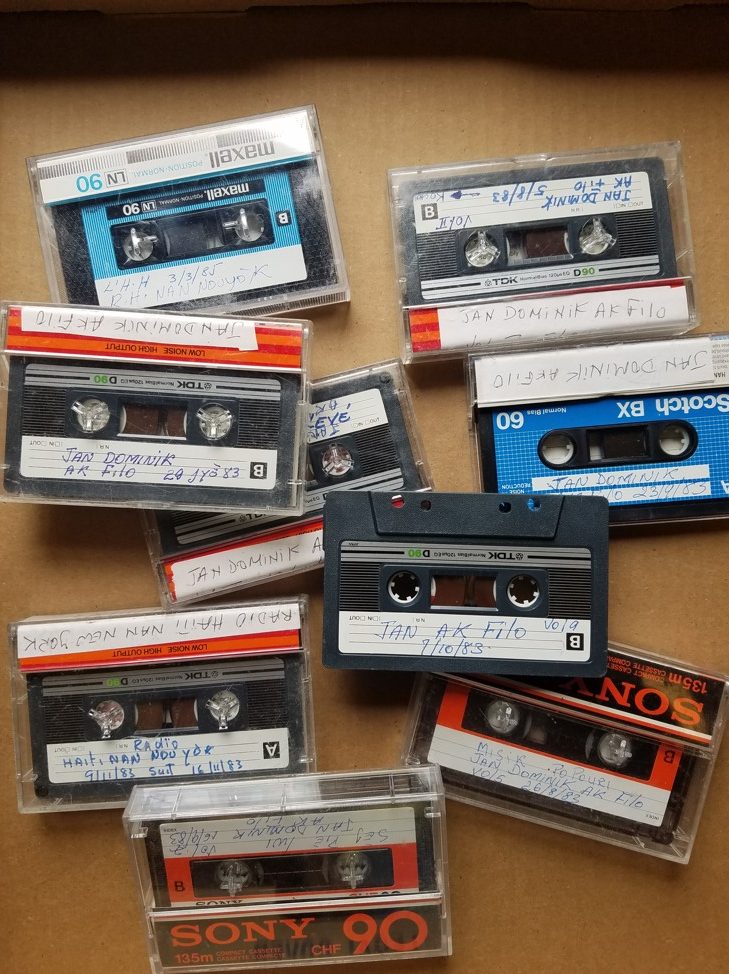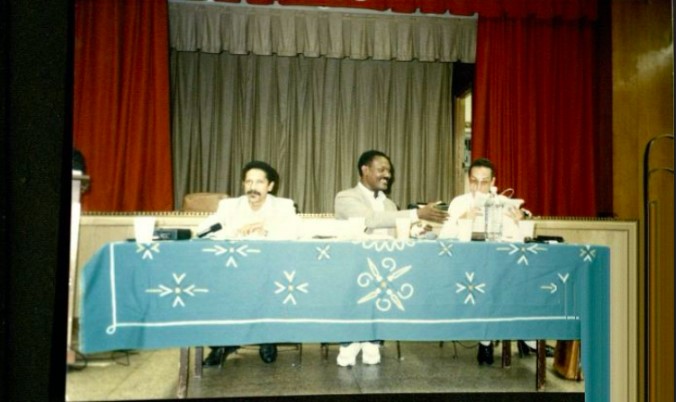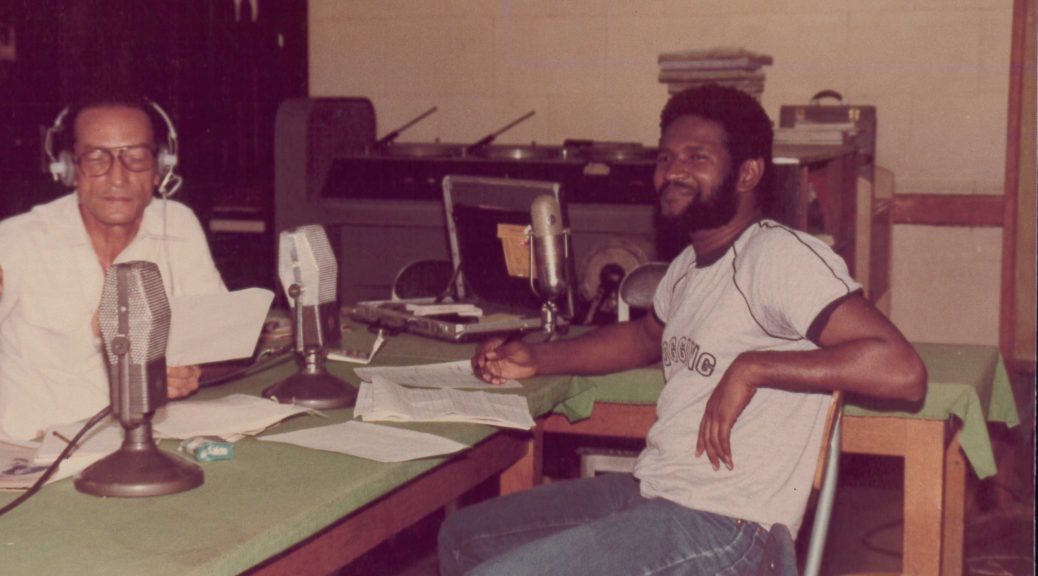Post contributed by Ayanna Legros Doctoral Student in the History Department at Duke
In New York City, Radio Haïti-Inter staff joined musicians, writers, professionals, and other Haitian exiles who had fled the Duvalier regime (1957-1986). Barbershops, cafés, bookstores, churches and street corners became stages for Haitians to passionately debate politics and the future of the nation. While newspapers such as Haïti Observateur, Haïti Tribune, Haïti Progrès, and Sèl circulated around the Upper West Side of Manhattan, offering exiles room to present opinions, radio provided members of the Haitian community a sonic space to grapple with the realities of their homeland while also discussing strategies for combatting racism, xenophobia, sexism, classism, and the linguistic privileging of the French language over Kreyòl. Kreyòl – the national language of Haitians – connected exiles across differing class and educational statuses. While some radio programs operated with licensing, others bypassed state and institutional regulation to avoid surveillance and penalization for usage of airwaves.
One radio station that rose to prominence was Lè Ayisyen, a Haitian Creole radio show run out of Columbia University between 1969 – 2002. Like Radio Haïti Inter, Lè Ayisyen staffers and volunteers understood that Haiti’s issues had to be interconnected with the democratic struggles of Central American, Caribbean, Latin American, and African nations. Conflict in nations ranging from Nicaragua to Eritrea were documented and shared with the community. The founder of the program, Lionel Legros, stated during an oral history interview that he wanted listeners to understand “The United States was not going to save Haiti.”[2] In other words, Haitians should to be cautious of U.S. involvement in the region – Haitian exiles were aware that Cold War politics dictated the U.S.’ rapport with its Caribbean neighbor.
In November 1981, one year after living in New York in exile, Jean Dominique participated in an interview with Daniel Huttinot on Lè Ayisyen. Huttinot asked Dominique about his silence, the state of Haiti, and his perception of democratic movements. Dominique replied with messages of hope in the diaspora while also expressing frustration in lacking his own station. After two years, Jean Dominique came back on the air, on a program called Radio Haiti in New York (Radyo Ayiti nan Nouyòk) on WNYE 91.5FM. a non-commercial independent radio station licensed through City University of New York (CUNY). Co-hosted by Jean Dominique and Anthony Pascal (aka Konpè Filo), the program surveyed issues impacting the everyday lives of Haitians in the early 1980s such as immigration, HIV/AIDS stigma, and the murder of Firmin Joseph, founder of the weekly newspaper Tribune d’Haïti.

Duke University
Daniel Huttinot many years later recalls the impact of Lè Ayisyen on the Haitian community in New York stating that they had “loyal listeners” for years and would regularly host Haitian exiles on their program seeking to share about their experiences back home.[3] Further discussion about the collection with researcher Jennifer Garcon, PhD, as well as Radio Haïti-Inter archivist, Laura Wagner, PhD, demonstrate the force of radio within the Caribbean and the diaspora. Laura and I for several Saturdays went through the Lè Ayisyen collection and unbeknownst to us discovered many Radio Haïti in New York cassettes, adding to the robust collection already housed at Duke. These cassettes offer valuable information about Reagan’s policies in Central American and the Caribbean countries and the enormous contributions of exile voices to the ousting of Jean-Claude Duvalier 7 February 1986.

Labeled: Jan ak Filo (Jean and Filo) or Radio Haïti Nan Nouyòk (Radio Haïti in New York)
Radio Haïti in New York tapes will soon be digitized and made available. The vast majority of Lè Ayisyen’s collection remains independent and unprocessed. Both collections will offer researchers access to an important chapter in New York City Haitian migration history. Bridging the Lè Ayisyen archive with Radio Haïti Inter’s fills an important gap in the Radio Haïti Archive. Values such as tèt ansanm (heads together) and collaborative working practices in archival preservation and academic work are continued necessities particularly in the rapidly paced digital age in which data collection and digitization present libraries and researchers a new set of challenges.[4] The practice of tèt ansanm by historians, archivists, and data collectors will continue to be necessary in order to create solutions for the impending challenges of the digital age.

New York City
[1] Demme, Jonathan, director. The Agronomist. 2003.
[2] Legros, Lionel, phone interview, April 20, 2019
[3] Huttinot, Daniel, interview, August 2, 2017
[4] Lara Putnam, The Transnational and the Text-Searchable: Digitized Sources and the Shadows They Cast, The American Historical Review, Volume 121, Issue 2, April 2016, Pages 377–402, https://doi-org.proxy.lib.duke.edu/10.1093/ahr/121.2.377


